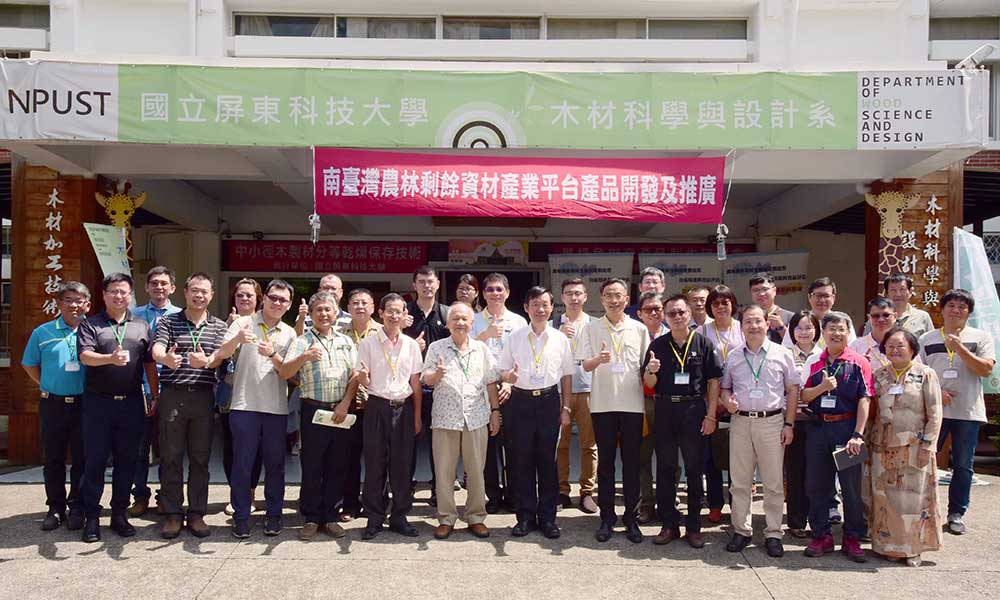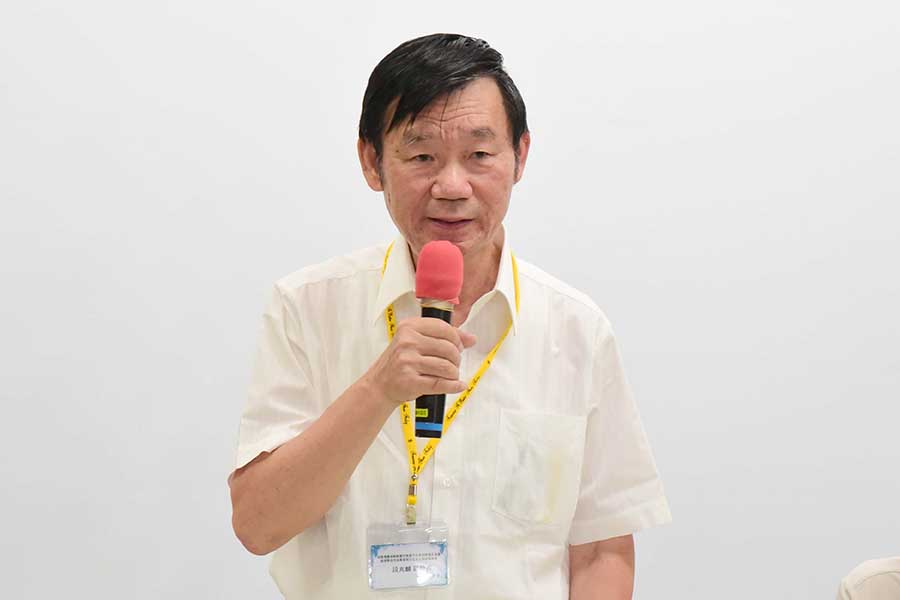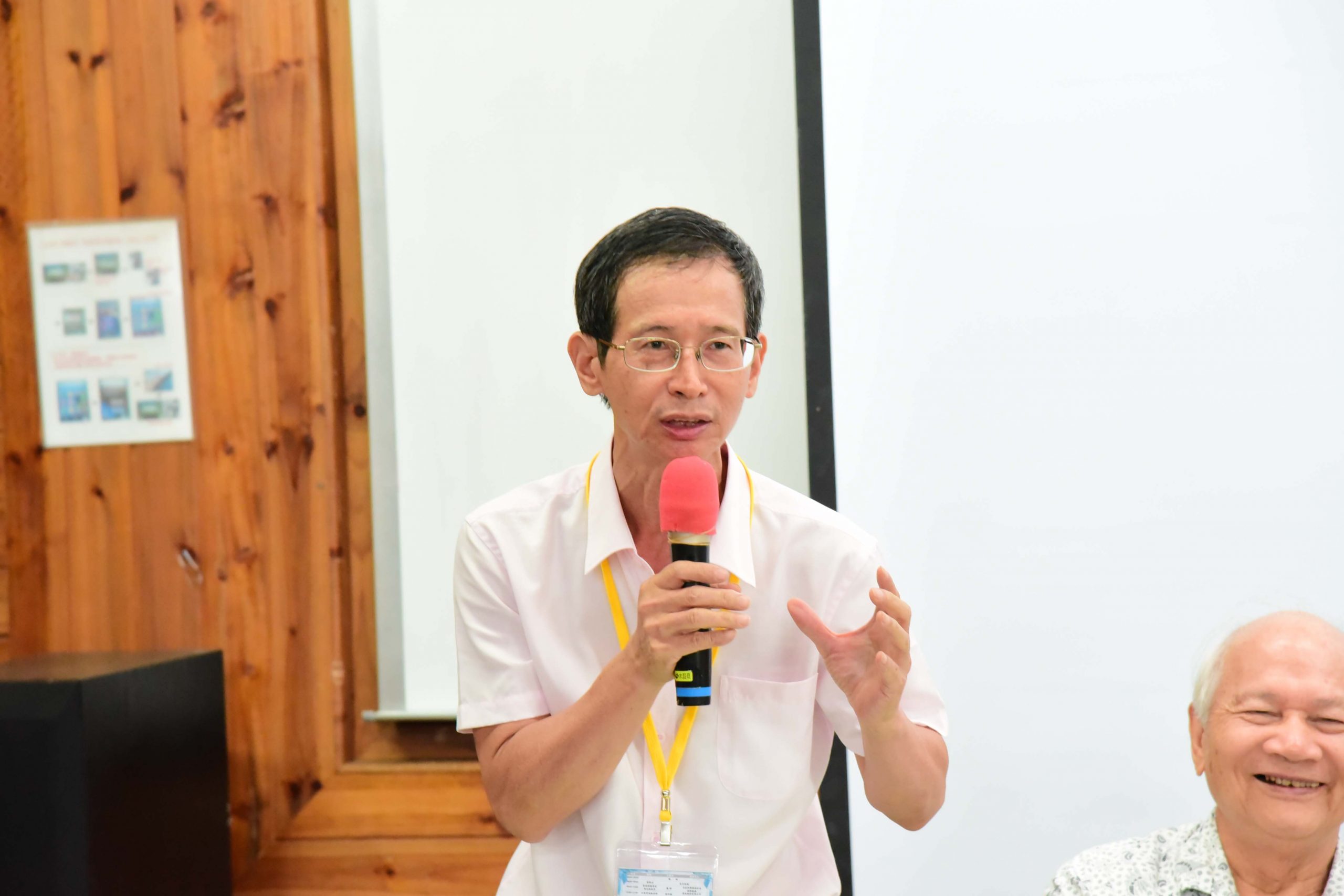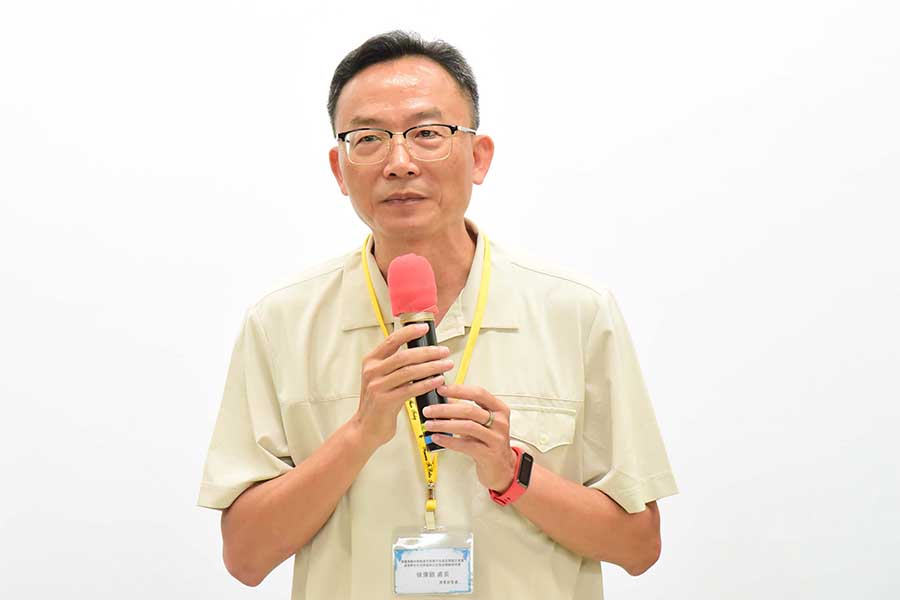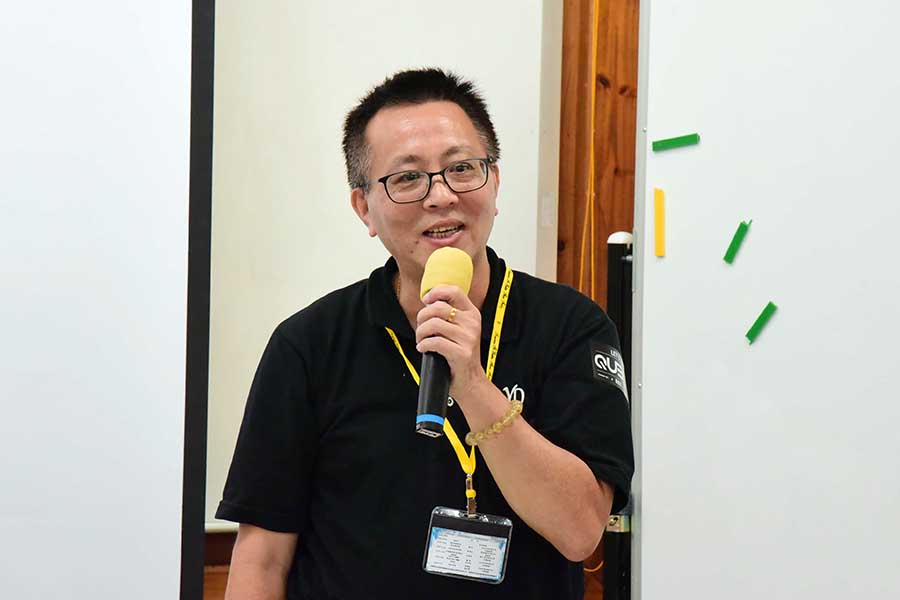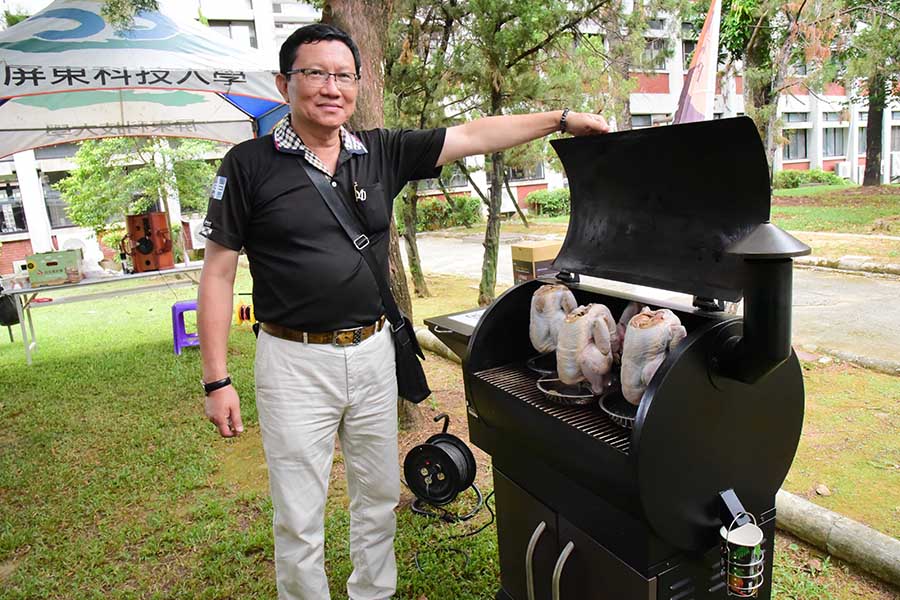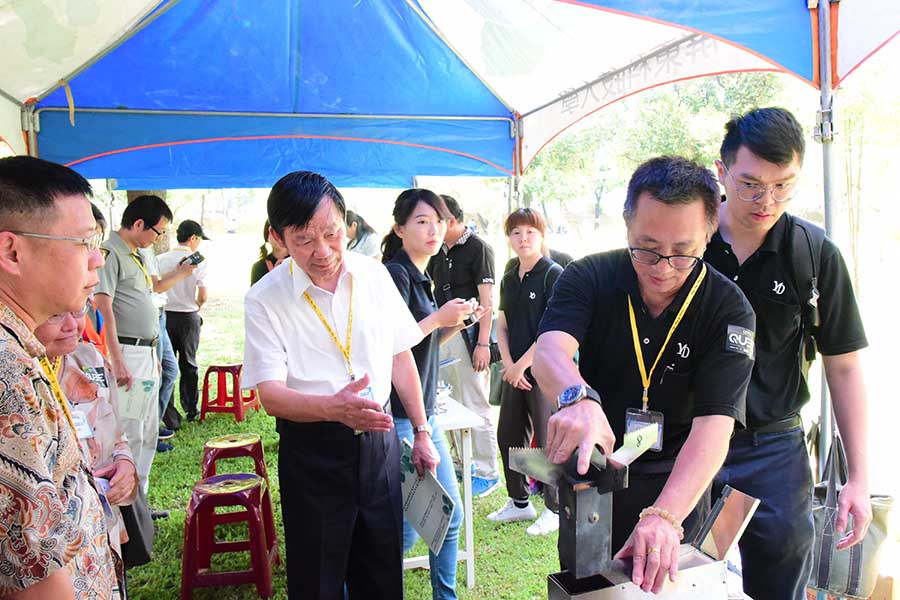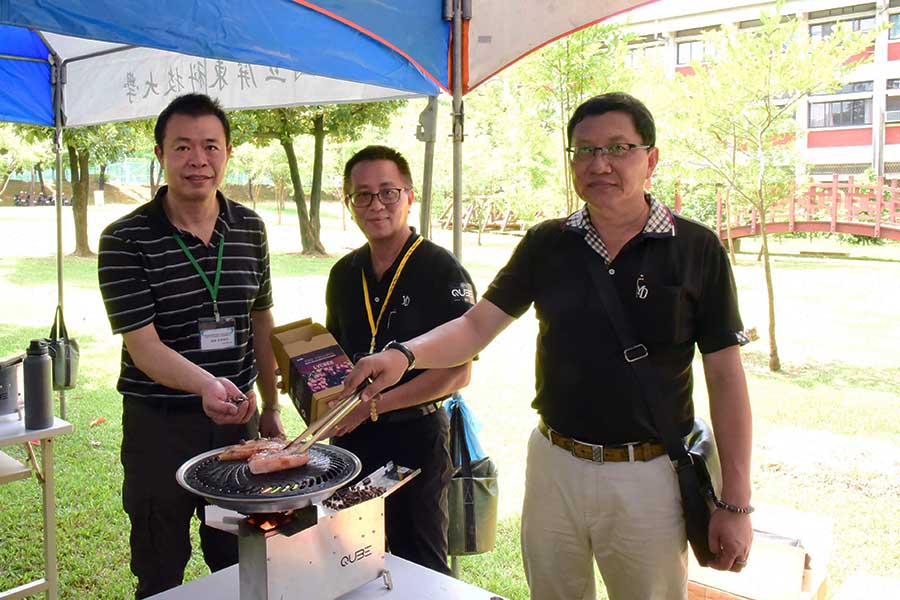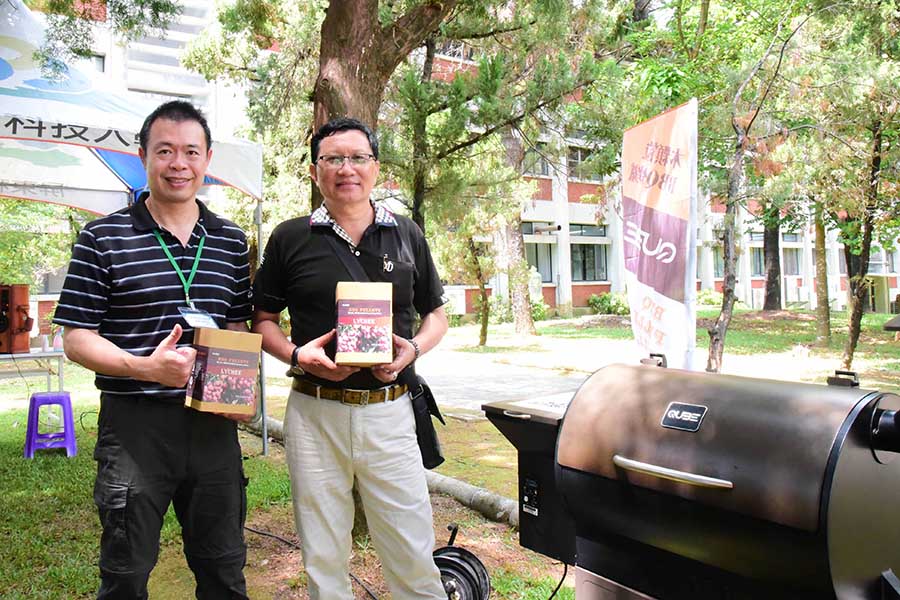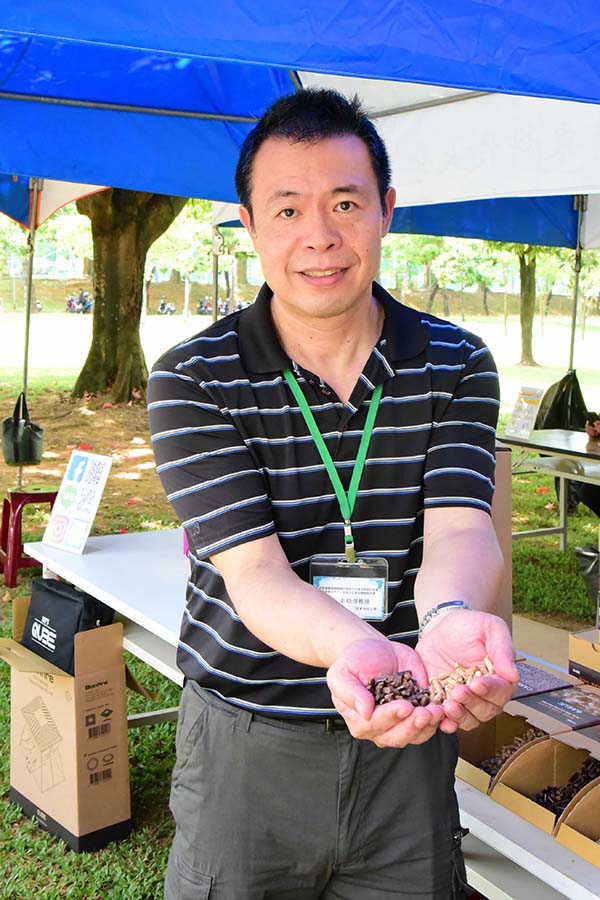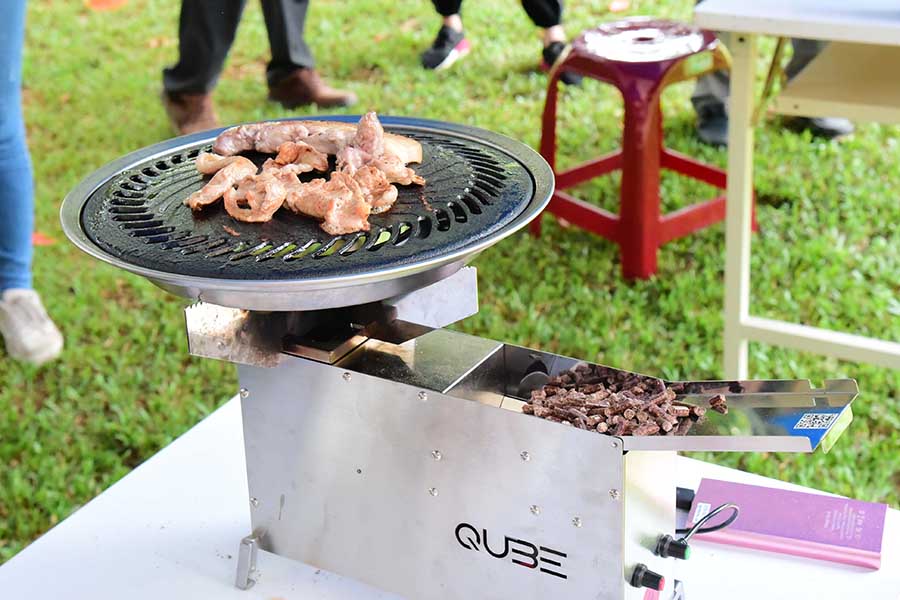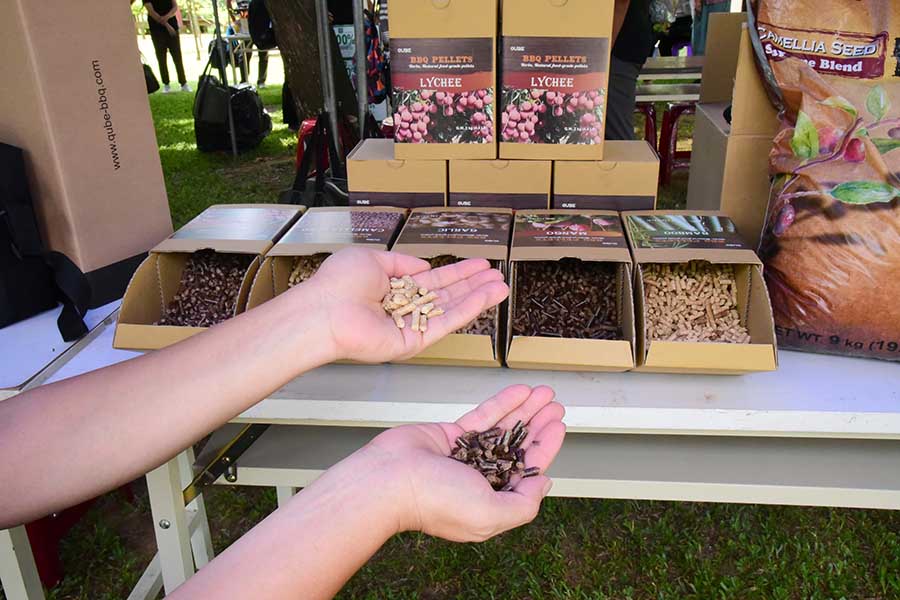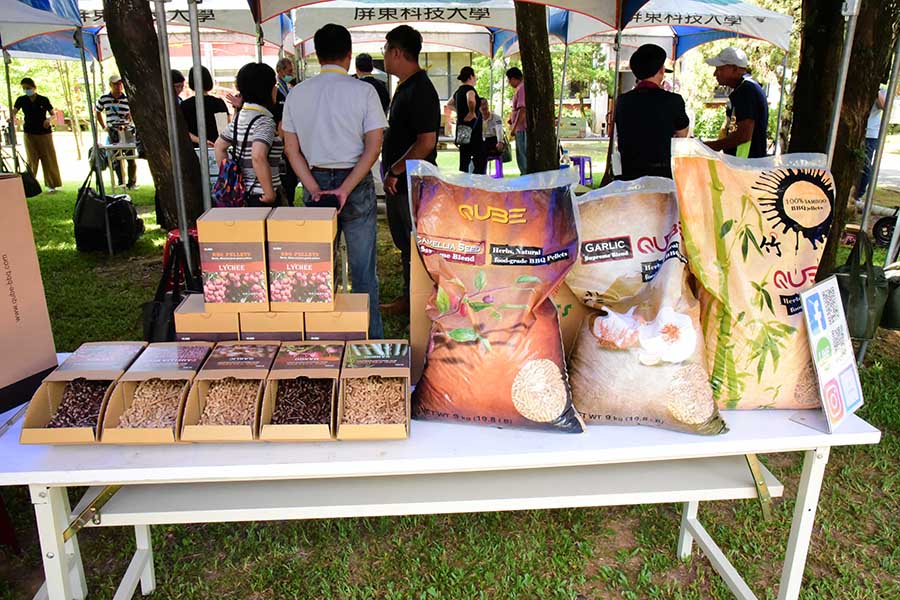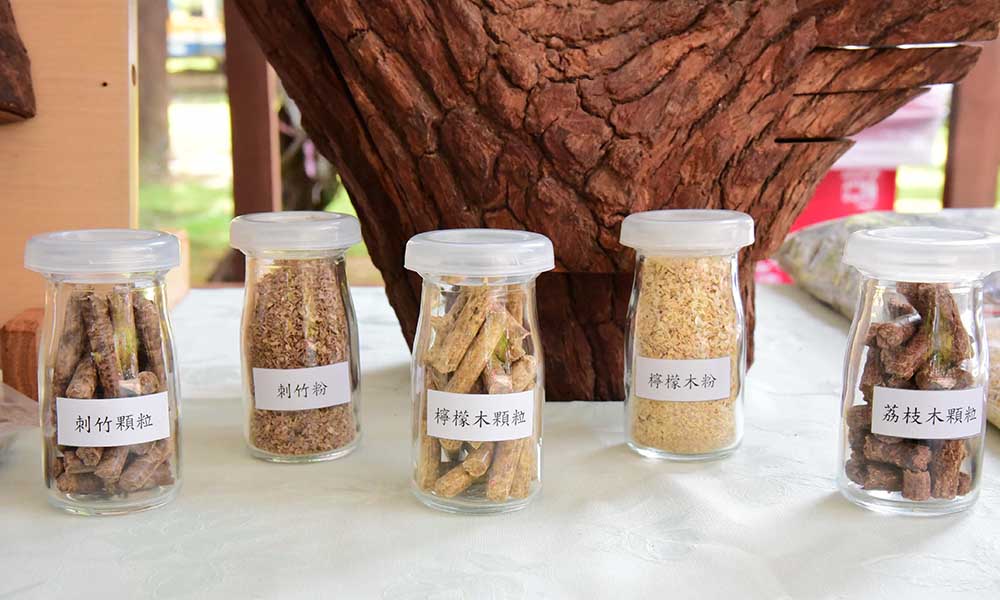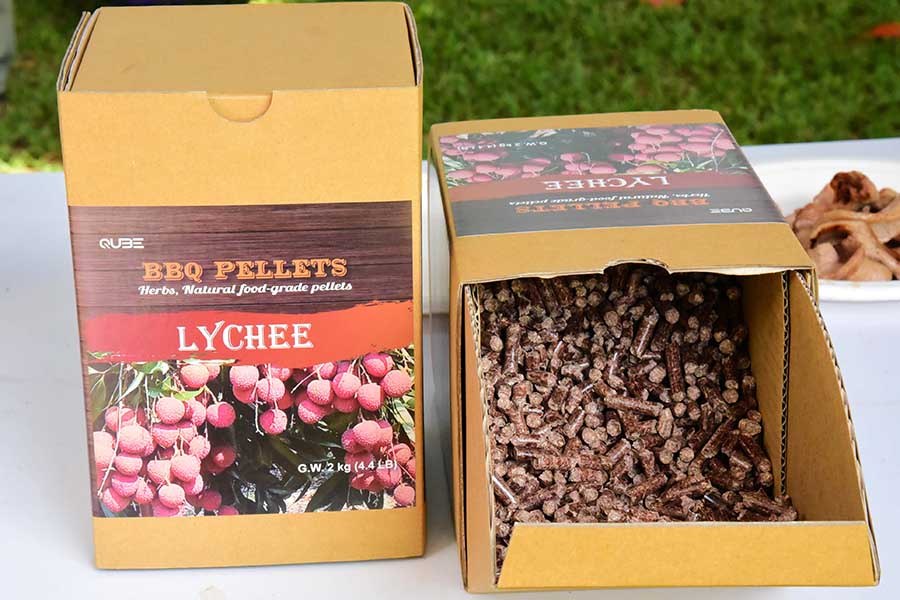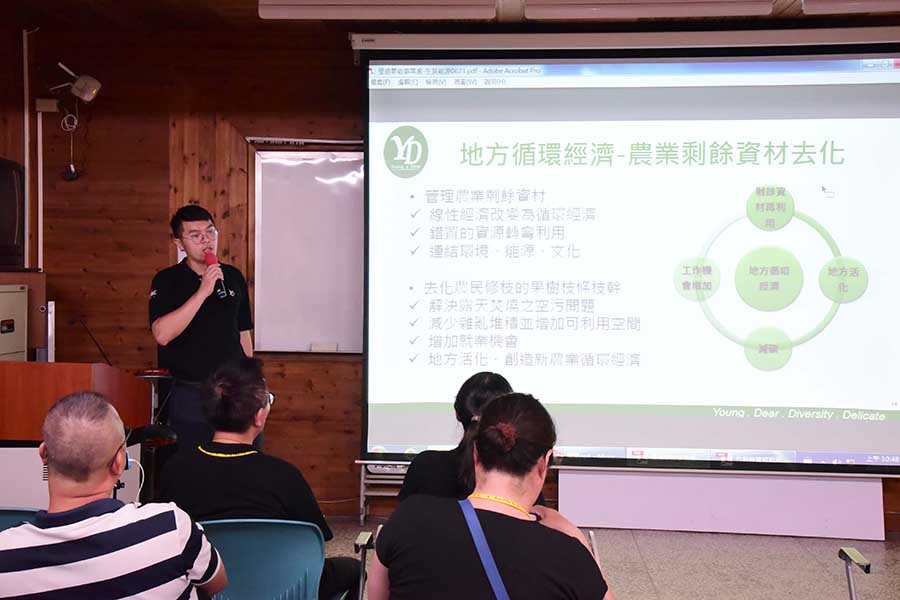NPUST is looking for treasure in unexpected places—and already, the search is paying off. As part of its effort to develop more sustainable economic activities, NPUST has been cooperating with the government on sustainable-development-orientated activities, such as green energy production. In line with energy saving and carbon reduction policies, the university has also been exploring ways to convert agricultural and forestry waste materials into “green gold”, through professional carbonization technology.
One June 23rd at 9:30 AM, a presentation was held to explain a newly-developed processing technique that is being used to add-value to waste wood from fruit trees. Using the technique, waste wood is converted into natural fuel pellets that can be safely used for barbecuing food. The presentation was held at the NPUST Wood Processing Plant to give attendees an opportunity to experience a new type of “charcoal” BBQ, that is more eco-friendly – and more fragrant!
In cooperation with Ynidyi Enterprise Co., Ltd., a special COA sponsored research center at the university has been working to develop barbecue fuel using fruit tree branches—and a special barbeque that allows for lower emissions and greater energy savings. And now, the results of the joint project are proving to be a textbook case of “circular economies”.
NPUST administrative vice president, Dr. Chao-Lin Tuan, explained that “the biomass fuel pellets are being created with waste wood from different fruit trees to give off different scents. The results provide an optimal example of circular economies.” Also commenting on the development, the director of the Pingtung Forestry Bureau stated that “using the concept of circular economies helps create efficiency. If there is an opportunity in the public sector in the future, such technology can also be used to promote development.” The general manager of Ynidyi Enterprise expressed his pleasure with the outcome of the project stating: “we were very happy to have this opportunity to work with NPUST to develop these high-value fruit trees biomass pellets, and to re-interpret and redefine the idea of agricultural wood “wastes”.
Agricultural and forestry waste materials have always been a headache for agriculture administrations and environmental protection agencies. It is not easy for farmers to burn or dispose of the materials, and disposal costs are unbearable. Aiming for better solutions, in 2018, NPUST has started working on an “evaluation of agricultural and forestry residual material biochar production technology” for the Council of Agriculture. With the full support of the Taiwan Forestry Research Institute, in 2019 a center was established to conduct R&D which focuses on value-adding processes that can be applied to waste material recycling.
With the fuel pellets developed by the Department of Wood Science and Design and the specially designed “QUBE Multifunctional Outdoor Windproof Stove” developed by Ynidyi Enterprise, barbequers can keep a hot and stable fire burning even when conditions are windy. The fuel pellets are made from pure and natural fruit tree wood, meaning that not only are they friendly to the environment, but they also add a special fragrance to the food that is being cooked on the grill.
NPUST is using its expertise in wood processing and agriculture technology to reinterpret and redefine agricultural “waste”. Their research is being applied to various fields including agriculture, forestry, fisheries and animal husbandry in an effort to reduce costs while simultaneously increasing output value. In essence, they are not only working to protect the environment, but also, turning waste products into gold.
The full utilization of renewable resources is the basic principle of sustainable production. With the establishment of the “Center for R&D on Circular Economic Use of Agricultural and Forestry Materials”, hopes are that the university will be able to turn all sorts of wood and agriculture waste products into something of value —
reducing resource consumption and creating life-styles that are more friendly to the planet.

